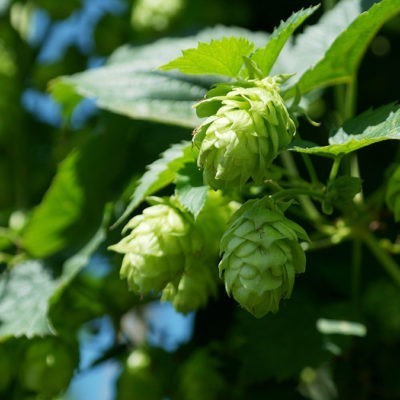Beer and Kashruth

For thousands of years mankind has developed certain rules and traditions. Later, modern judicial laws were written on their basis.
Some believe that all these rules of our life are given by the God, some by aliens, and some think that they are the product of years of experience and logic. The main thing is that these laws and rules work.
In Judaism there is a whole body of laws of right nutrition – kashrut. The great Torah scholar Rabbi Moshe ben Maimon (Rambam), who was also one of the most prominent doctors of his generation, attempted to explain the laws of kashrut logically on a medical basis. He proceeded from the principle that everything the Torah forbids Jews to eat is unhealthy and all that the Torah permits – cannot harm.
The condition must be that the amount of food and the times at which eaten are strictly defined. The Rambam, for example, argued that the absence of scales on fish (which is a sign of non-kosher fish) is only a purely external sign, allowing people to see that a given fish is unfit for food. The Torah, by requiring us to keep kashrut, provides us with a reliable key for identifying what is healthy and what is harmful. Must be noted, that modern medicine recognizes that there is much that is medically correct in the basics of Rambam’s system and uses his approach.
However, many Torah authorities, who also had great knowledge of medicine, and among them Rabbi Moshe ben Nachman (Ramban), disagreed with Rambam. Among their arguments, was this: after all, non-Jews quietly eat most of the kinds of food that are forbidden to Jews. Can we say that it is harmful to their health?
The Ramban believes that the food forbidden by the Torah is harmful not to the health of our bodies, but to the health of our souls. He pointed out that most of the birds forbidden by kashrut are birds of prey (eagle, falcon and hawk). In contrast, the birds that are allowed, chickens, pigeons, geese, swans – are peaceful, quiet, and do not eat meat. According to the Ramban, the meat of birds of prey affects the character of the person who eats it and gives him those characteristic negative qualities that distinguish these birds.
From this point of view, the Torah’s repeated prohibition to eat blood (badly fried food) becomes understandable: eating blood develops a habit of cruelty in a person, develops in him the qualities of a destroyer and murderer. The Torah says, “Blood is the soul,” and the soul is damaged by eating blood.
Many thinkers, however, explain kashrut not in terms of whether the forbidden food harms the soul or the body, but as a means against the assimilation of the people of Israel among other peoples. However, let us leave that to each individual to decide for himself – this is a beer portal, not a religious forum.
Beer was born in the Middle East, in those days it was called “Sheikhar”. Over the years certain rules and requirements for its production have been developed, and they have not changed much today. The kashrut requirements for the production of beer are quite clear and not overly stringent in comparison to the production of other cereal products. “Non-Jews” can also make Beer, unlike wine and bread, as long as the other kashrut rules are observed.
The main problems come with malt. The most important requirement is the barley harvest. Kosher barley is considered barley that was planted and harvested in the winter season (between Sukkot and Passover), otherwise, it must take time to rest. All batches of malt are monitored by a special rabbi based in Munich, who sends the breweries a list of the allowed batches of malt to be brewed.
Of course, the availability of all kinds of bugs is categorically forbidden. There is nothing wrong with malt in this respect, problems sometimes occur with replacement products, such as corn. There are no problems with hops and yeast, since they are not of animal origin, and bugs do not breed there. Moreover, of course, there must be a person well informed about these complexities, i.e. a Rabbi, with the appropriate credentials.
In addition to the requirements for materials, there are also certain rules for the production of beer. They are fairly standard. It is forbidden for Jews to work on the Sabbath, by the way, which is an excellent rule. Not only can’t produce, but you can’t touch the ingredients of beer during Passover. In case of technical problems, “non-Jews” who also work in the breweries can fix them.
You can agree or not with these rules, you can follow them or you can break them, but to ignore the millennia of wisdom is unwise, to say the least.















